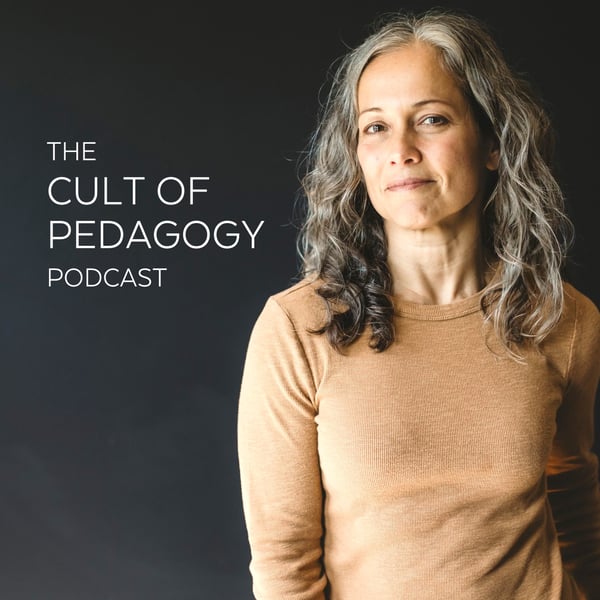47: Black Girls and School: We Can Do Better
The Cult of Pedagogy Podcast
Jennifer Gonzalez
4.8 • 2.4K Ratings
🗓️ 3 July 2016
⏱️ 61 minutes
🧾️ Download transcript
Summary
Are we meeting the needs of black girls in our schools? In this interview with author Monique Morris, we talk about her book Pushout: The Criminalization of Black Girls in Schools, the 2016 selection for the Cult of Pedagogy Summer Book Study. Dr. Morris explains how far too many teachers lack the cultural competence to understand and meet the needs of black girls, the damaging long-term effects of this dynamic, and what we can do to change this.
Transcript
Click on a timestamp to play from that location
| 0:00.0 | This is Jennifer Gonzalez welcoming you to episode 47 of the Cult of Pedagogy podcast. |
| 0:05.3 | In this episode, I'm going to talk with Dr. Monique Morris about how we as educators can do a better job |
| 0:11.5 | meeting the needs of the black girls in our schools. |
| 0:14.7 | Welcome to the 2016 Cult of Pedagogy Summer Book Study. Every summer I choose a different education-related book for us to read together. |
| 0:35.7 | Last summer we read Make It Stick, the Science of Successful Learning. It was a fantastic book and I think it really had an impact |
| 0:44.1 | on how teachers presented their material. If you haven't read it, I recommend you check out episode 21 where I interviewed one of the authors, Peter Brown. |
| 0:53.7 | For 2016, I've chosen a book that is about as different from Make It Stick as you could imagine. |
| 0:59.9 | This time we're not focusing on learning and memory, but on how we work with one specific subsection of students. |
| 1:07.4 | The book is called Push Out, the criminalization of black girls in schools and it's written by Monique Morris. |
| 1:15.5 | In the sea of education books on how we can leverage technology, redesign our classrooms and improve our instruction, push out with something completely different. |
| 1:24.9 | It caught my attention right away because every year I was in the classroom I taught black girls. |
| 1:30.8 | Some were very successful, others were not. |
| 1:34.0 | I never really considered whether there might be something unique in the way those girls experience school. |
| 1:39.5 | Something I might have been able to adjust in the way I approach them that would have helped a whole lot more of them truly thrive in school and in life. |
| 1:49.0 | That's what Monique Morris studied. |
| 1:51.6 | Over the course of four years she interviewed black girls about their experiences in schools. |
| 1:56.9 | What she learned is that most schools have policies in place that marginalize these girls and most teachers haven't been trained in the cultural competencies that would enable us to help these girls truly thrive. |
| 2:10.8 | In the book, Morris starts by showing us exactly how the push out happens, how zero tolerance policies and cultural misunderstandings between black girls and their teachers can result in punishments that far outmatch the original offense. |
| 2:27.4 | She examines how the dominant culture in our schools, the way we define a good student as one who is quiet and compliant, leaves no room for the assertive outspokenness these girls tend to bring with them. |
| 2:41.1 | Faced with this outspokenness, this attitude, we respond in ways that only make the girls feel disrespected and misunderstood, setting off a vicious cycle that usually ends in suspension or expulsion. |
| 2:54.4 | When we suspend a child, we hurt her academically. We make it less likely that she will succeed in school. |
| 3:01.0 | And when she doesn't, other environments are waiting for her with open arms, abusive relationships, sex trafficking and incarceration. |
... |
Please login to see the full transcript.
Disclaimer: The podcast and artwork embedded on this page are from Jennifer Gonzalez, and are the property of its owner and not affiliated with or endorsed by Tapesearch.
Generated transcripts are the property of Jennifer Gonzalez and are distributed freely under the Fair Use doctrine. Transcripts generated by Tapesearch are not guaranteed to be accurate.
Copyright © Tapesearch 2025.

